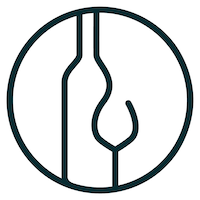
Successfully completing an accredited training course related to the hospitality industry is only the first step towards working in your ideal role. Because naturally, having recognised certification doesn’t mean employers are going to be knocking on your door trying to recruit you. You’re still going to have to put in some effort to secure work after completing your training.
Polish Up Your CV
If you don’t yet have a CV, now is the time to put one together. And if you already have a CV, you need to update it to include your recently completed training. If the training you completed included some work placement, your CV should also include this as it shows you have relevant work exposure.
Any previous work experience in other industries should be tailored to highlight skills you acquired that are also useful in the hospitality industry. Customer service, working well as part of a team, problem solving, and attention to detail are valuable skills in many hospitality jobs. While you’re doing this, you should also create or update your LinkedIn profile as it can be an important part of your online brand as you progress to more senior hospitality roles.
Ideally you also want to tweak your CV for each job you apply for, paying attention to the requirements listed in the job posting.
Tame Your Expectations
It is important to know what your ideal role in the hospitality industry is. But it is equally important to understand you’re going to have to work your way up to it. Unless you already have experience in the hospitality industry, you’re going to need to look at entry-level positions first. Even with a nationally recognised qualification.
As with other industries, there is a ladder of hierarchy that you should expect to work your way up. Having formal certification can help you move up the ladder much faster, but it won’t allow you to skip it completely.
You also shouldn’t be shy about accepting an internship, apprenticeship, or trainee position–even if it is unpaid–as it is another way of gaining valuable skills that can assist you in landing a great, permanent role. You can even look for part-time internship roles while you are studying, giving you a head-start, and also allowing you to network within the industry.
Start Applying
Even in this highly digital age, getting started in the hospitality industry often depends on an in-person approach. This means identifying businesses in your area that could give you the kind of experience you need, and then introducing yourself and asking if you can leave a copy of your CV. Timing is crucial here, and you want to make sure you don’t do this during the establishment’s peak trading hours.
That said, there are a number of job boards that either include hospitality jobs or focus only on the hospitality industry. These are usually free for job seekers and signing up for each of them will not only make it easier to apply, but it will also allow you to set alerts for the kind of role you are looking for.
The important part of working in any industry is networking, and there are many different ways you can go about this. If you recently completed a barista course but are currently working as wait staff, mention this to other baristas whenever you get a coffee. Their establishment might not be looking for a junior barista, but they might know of another they could refer you to. The key to securing work after education is marketing yourself; from sprucing up your CV, through to networking within the industry.





